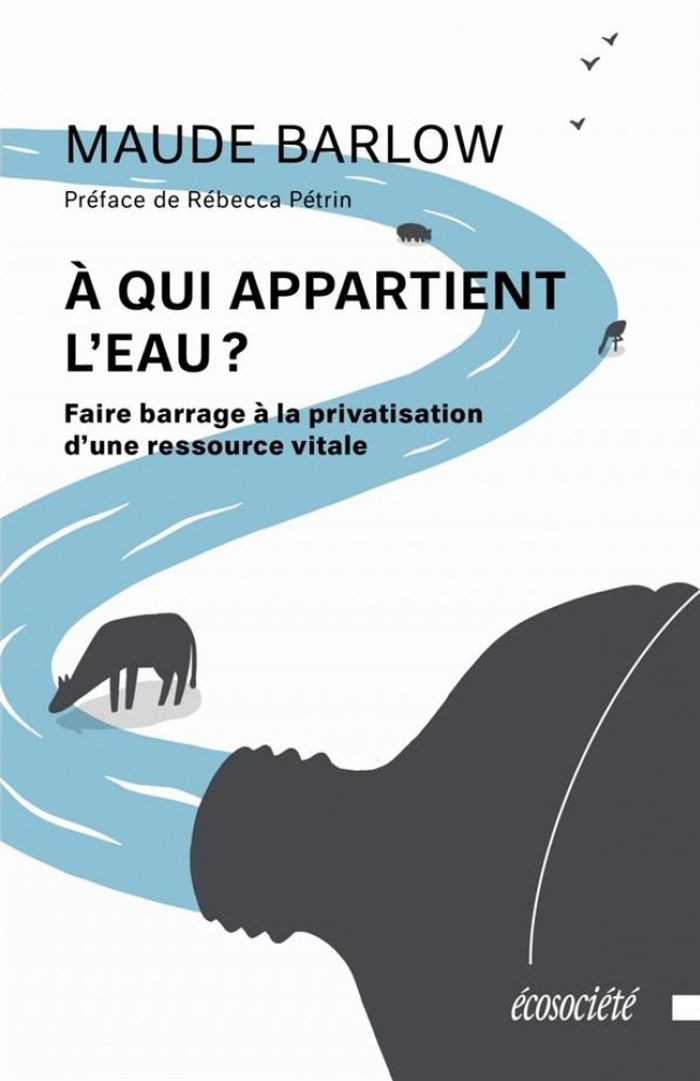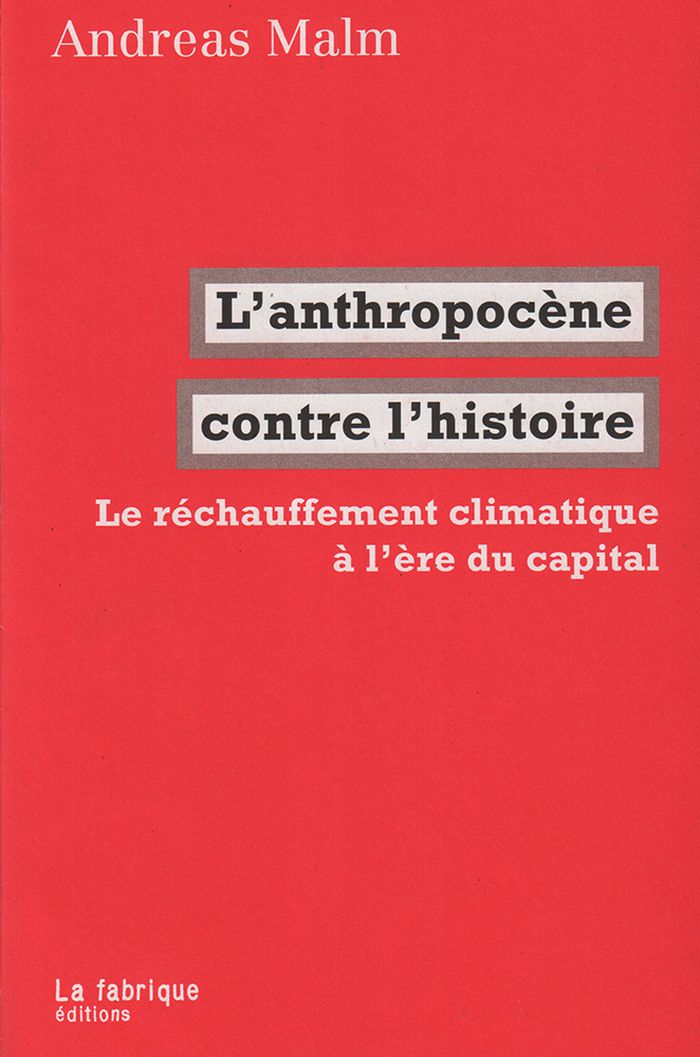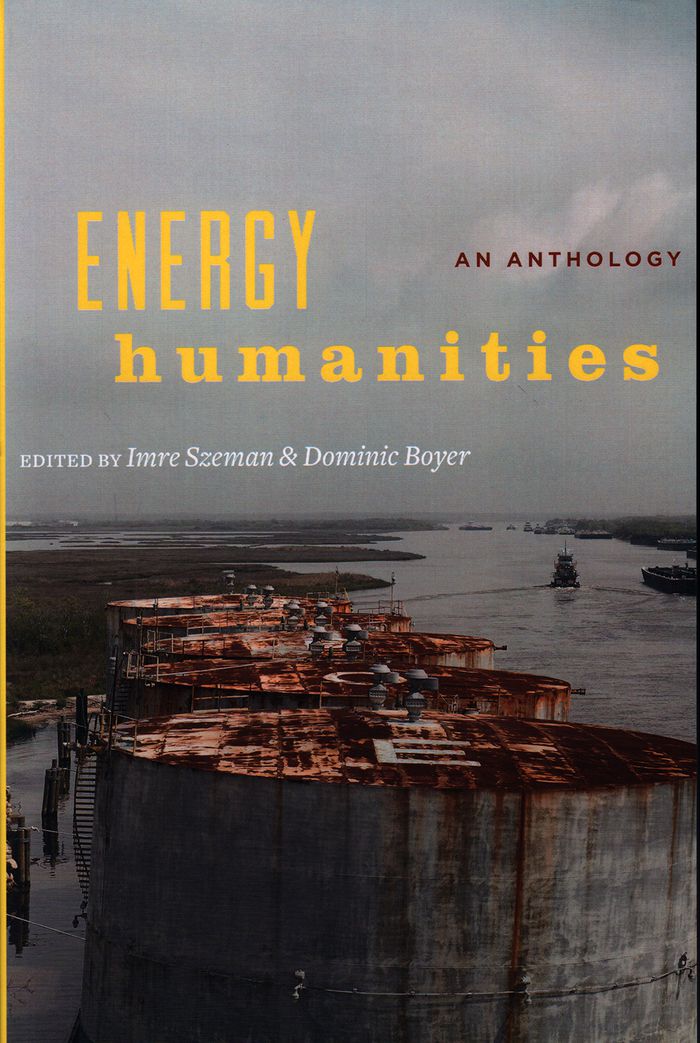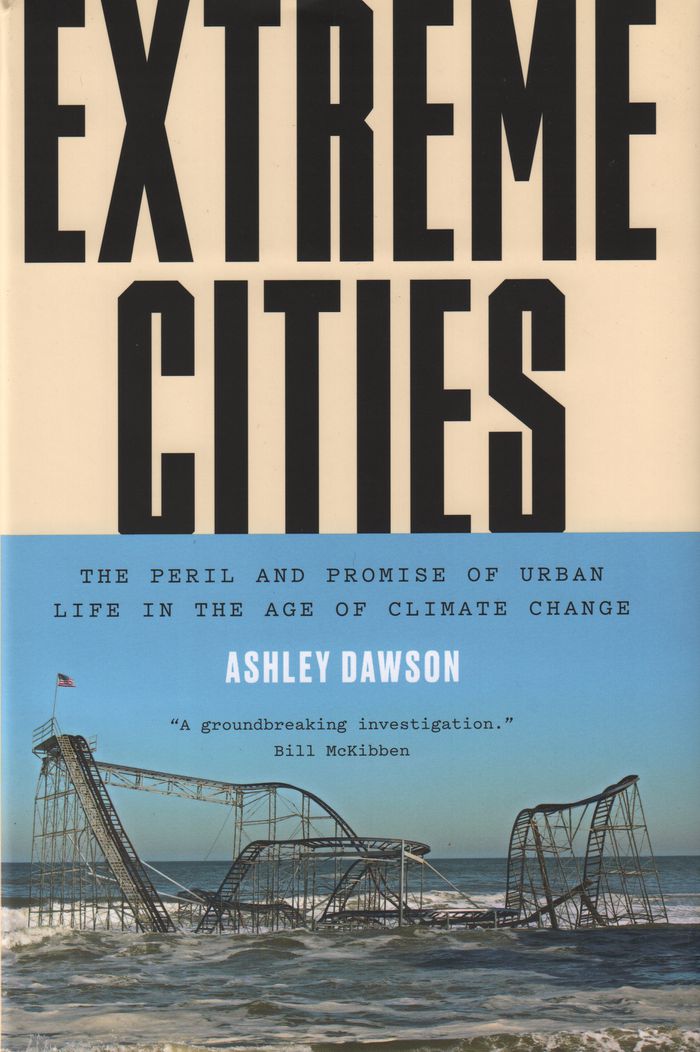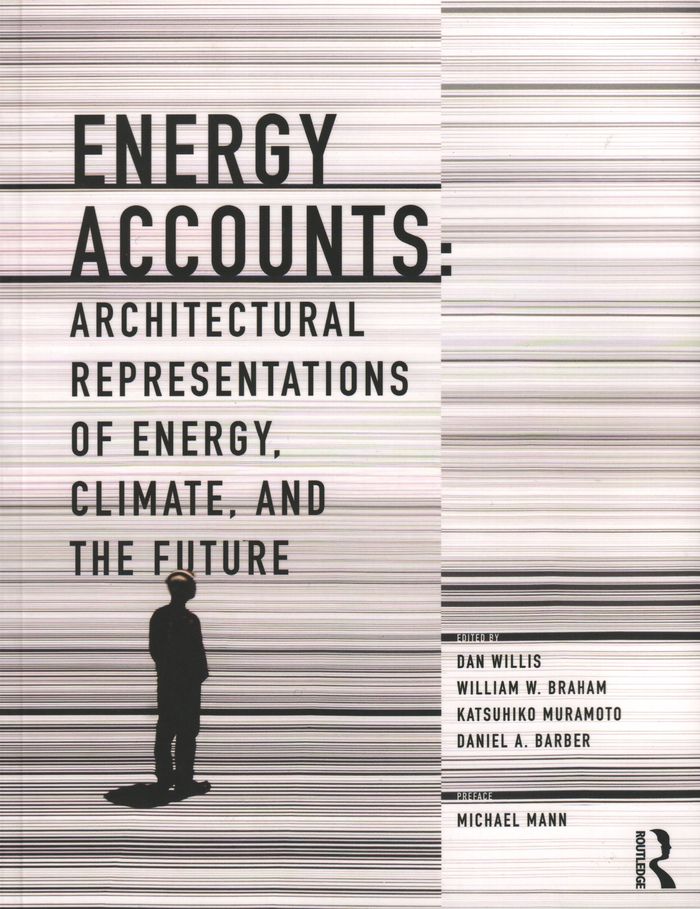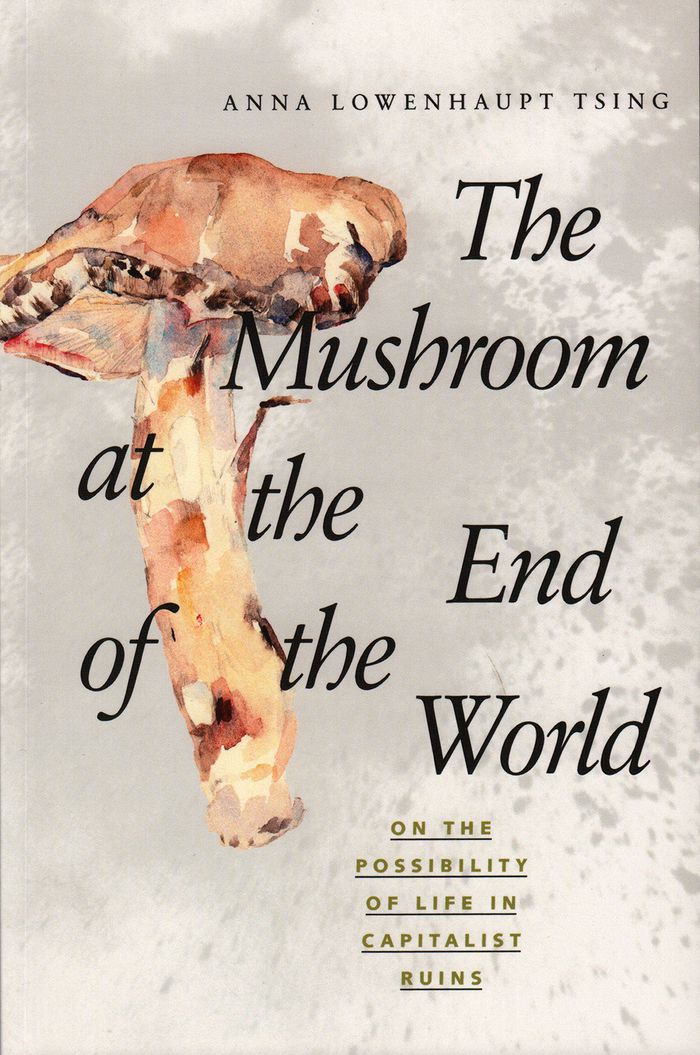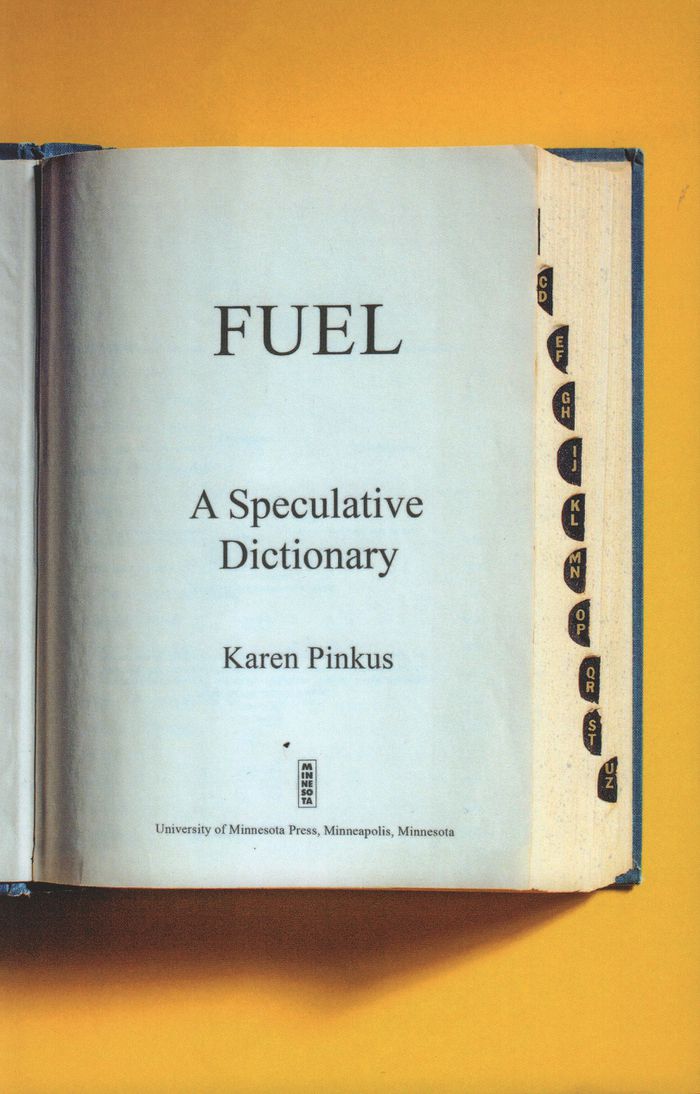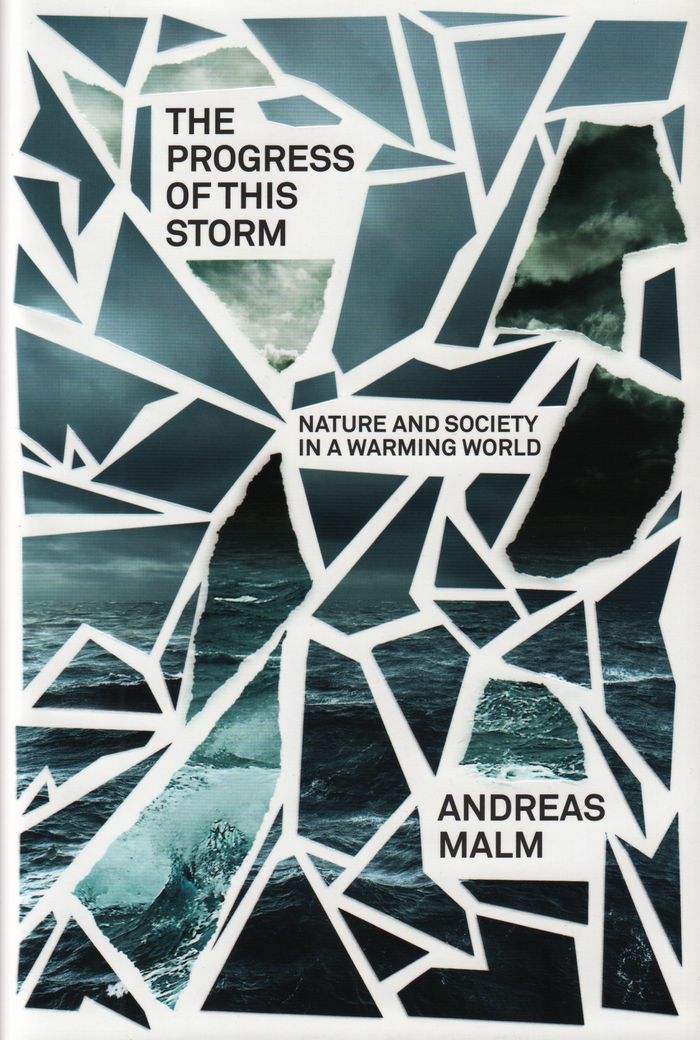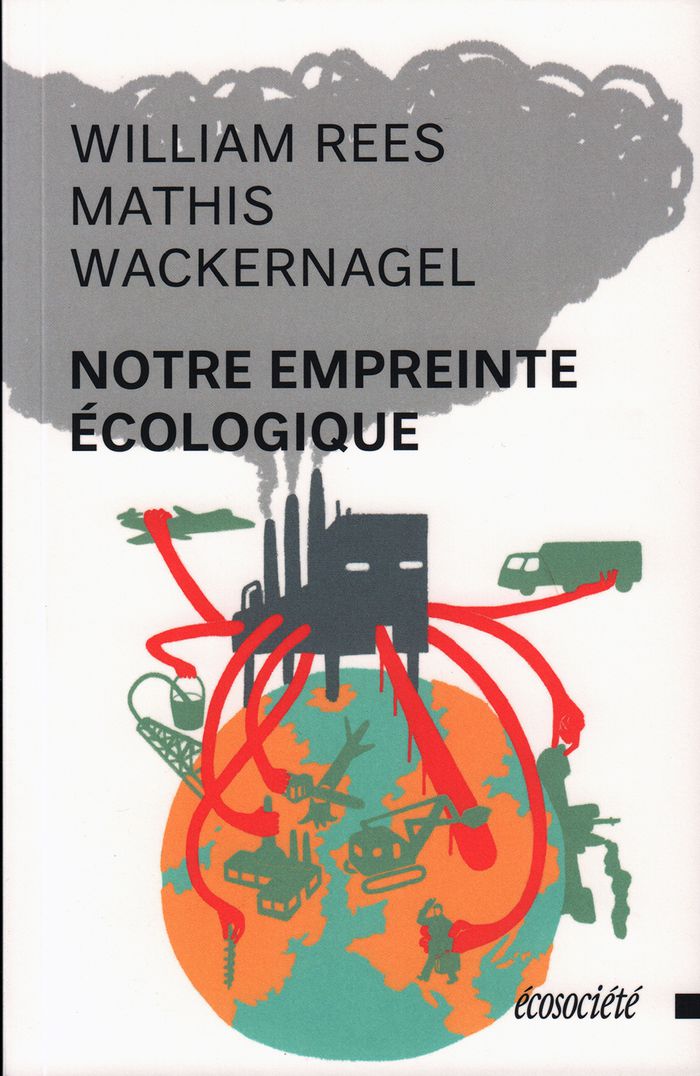À qui appartient l'eau ?
$20.00
(disponible sur commande)
Résumé:
Maude Barlow est une militante de la première heure pour le droit à l’eau. Elle a arpenté les conférences des Nations Unies à la défense de l’eau comme bien commun et est allée à la rencontre des communautés fragilisées par leur manque d’accès à l’eau. Pour elle, le droit à l’eau et le besoin de la protéger à son état naturel sont interconnectés, écologie et droits de la(...)
À qui appartient l'eau ?
Actions:
Prix:
$20.00
(disponible sur commande)
Résumé:
Maude Barlow est une militante de la première heure pour le droit à l’eau. Elle a arpenté les conférences des Nations Unies à la défense de l’eau comme bien commun et est allée à la rencontre des communautés fragilisées par leur manque d’accès à l’eau. Pour elle, le droit à l’eau et le besoin de la protéger à son état naturel sont interconnectés, écologie et droits de la personne y sont étroitement liés. Car plus nous malmenons l’eau, en la pompant de façon excessive et en la polluant, le moins il en restera à partager équitablement. Et, lorsqu’il n’y en aura plus suffisamment, les plus vulnérables seront touchés les premiers et les plus durement. Fidèle à sa mission, elle fait ici le point sur l’urgence de préserver les ressources en eau de la privatisation et de se mobiliser dans chaque communauté pour se réapproprier cette ressource vitale.
$27.95
(disponible sur commande)
Résumé:
'Il faut couper la mèche qui brûle avant que l’étincelle n’atteigne la dynamite', écrivait Walter Benjamin dans un fragment célèbre, « Avertisseur d’incendie », où il insistait sur la nécessité d’en finir avec le capitalisme avant qu’il ne s’autodétruise et emporte tout avec lui. Pour Andreas Malm, on ne peut pas mieux dire l’urgence contemporaine de défaire l’économie(...)
avril 2017
L'anthropocène contre l'histoire
Actions:
Prix:
$27.95
(disponible sur commande)
Résumé:
'Il faut couper la mèche qui brûle avant que l’étincelle n’atteigne la dynamite', écrivait Walter Benjamin dans un fragment célèbre, « Avertisseur d’incendie », où il insistait sur la nécessité d’en finir avec le capitalisme avant qu’il ne s’autodétruise et emporte tout avec lui. Pour Andreas Malm, on ne peut pas mieux dire l’urgence contemporaine de défaire l’économie fossile par des mesures révolutionnaires.
$64.95
(disponible sur commande)
Résumé:
Energy humanities is a field of scholarship that, like medical humanities and digital humanities before it, overcomes traditional boundaries between the disciplines and between academic and applied research. Like its predecessors, energy humanities highlights the essential contribution that the insights and methods of the human sciences can make to areas of study and(...)
février 2017
Energy humanities: an anthology
Actions:
Prix:
$64.95
(disponible sur commande)
Résumé:
Energy humanities is a field of scholarship that, like medical humanities and digital humanities before it, overcomes traditional boundaries between the disciplines and between academic and applied research. Like its predecessors, energy humanities highlights the essential contribution that the insights and methods of the human sciences can make to areas of study and analysis once thought best left to the natural sciences. This isn't a case of the humanities simply helping their cross-campus colleagues to learn the mechanics of communication so that they might better articulate their ideas. Rather, these fields of scholarship are ones that demonstrate how the scale and complexity of the issues being explored demand insights and approaches that transcendold school disciplinary boundaries. "Energy humanities : a reader" offers a carefully curated selection of the best and most influential work in energy humanities that has appeared over the past decade. To stay true to the diverse work that makes up this emergent field, selections range from anthropology and geography to philosophy, history, and cultural studies to recent energy-focused interventions in art and literature. The three readers all agree that this is an important, ground-breaking collection of work.
$45.95
(disponible sur commande)
Résumé:
Les êtres vivants sont aujourd’hui soumis à un processus de domestication, d’exploitation et de manipulation sans précédent. Repousser les limites du vivant est devenu un enjeu majeur de nos sociétés. Ce projet d’actualiser et de déployer les virtualités des organismes biologiques s’inscrit dans une dynamique plus vaste et totalisante qui vise l’illimitation comme horizon(...)
novembre 2016
Les limites du vivant: à la lisière de l'art, de la philosophie et des sciences de la nature
Actions:
Prix:
$45.95
(disponible sur commande)
Résumé:
Les êtres vivants sont aujourd’hui soumis à un processus de domestication, d’exploitation et de manipulation sans précédent. Repousser les limites du vivant est devenu un enjeu majeur de nos sociétés. Ce projet d’actualiser et de déployer les virtualités des organismes biologiques s’inscrit dans une dynamique plus vaste et totalisante qui vise l’illimitation comme horizon global. À la démesure des ambitions affichées correspond fréquemment un manque de conception d’ensemble qui entraîne des conséquences pour le moins problématiques, voire néfastes. Une vision trop simpliste véhicule le plus souvent des approches et des modèles réducteurs favorisant la perpétuation d’un processus destructeur qui n’a plus raison d’être. Dans une démarche inter et transdisciplinaire, ce livre prend en compte les apports de scientifiques, d’artistes, d’historiens, de philosophes et d’économistes dans une volonté de clarifier les enjeux et les perspectives liés à la question du vivant et de sa complexité.
$39.99
(disponible sur commande)
Résumé:
In "Extreme cities", Dawson offers an alarming portrait of the future of our cities, describing the efforts of Staten Island, New York, and Shishmareff, Alaska residents to relocate; Holland’s models for defending against the seas; and the development of New York City before and after Hurricane Sandy. Our best hope lies not with fortified sea walls, he argues. Rather, it(...)
Extreme cities: the peril and promise of urban life in the age of climate change
Actions:
Prix:
$39.99
(disponible sur commande)
Résumé:
In "Extreme cities", Dawson offers an alarming portrait of the future of our cities, describing the efforts of Staten Island, New York, and Shishmareff, Alaska residents to relocate; Holland’s models for defending against the seas; and the development of New York City before and after Hurricane Sandy. Our best hope lies not with fortified sea walls, he argues. Rather, it lies with urban movements already fighting to remake our cities in a more just and equitable way.
$76.90
(disponible sur commande)
Résumé:
How does one tell the story of energy production, use, or conservation in a manner sufficiently convincing to influence policy, behavior, and design? "Energy accounts" explores potential answers to this question through compelling images, data visualizations, narratives, and other examples of accounting for energy. Organized into a collection containing both examples of(...)
juillet 2016
Energy accounts: architectural representations of energy, climate and the future
Actions:
Prix:
$76.90
(disponible sur commande)
Résumé:
How does one tell the story of energy production, use, or conservation in a manner sufficiently convincing to influence policy, behavior, and design? "Energy accounts" explores potential answers to this question through compelling images, data visualizations, narratives, and other examples of accounting for energy. Organized into a collection containing both examples of best practices and critiques, this impressive array of projects and contributors combines text and graphic material to explore different representations of energy data. Including work from Kieran Timberlake, SHoP, AMO, Lateral Office, WOHA, and many more, the book boasts a unique graphic design which supports and enhances its role as a valuable resource for professionals and students in architecture, engineering, and urban design.
$26.95
(disponible sur commande)
Résumé:
Matsutake is the most valuable mushroom in the world—and a weed that grows in human-disturbed forests across the northern hemisphere. Through its ability to nurture trees, matsutake helps forests to grow in daunting places. It is also an edible delicacy in Japan, where it sometimes commands astronomical prices. In all its contradictions, matsutake offers insights into(...)
septembre 2017
The mushroom at the end of the world: on the possiblity of life in capitalist ruins
Actions:
Prix:
$26.95
(disponible sur commande)
Résumé:
Matsutake is the most valuable mushroom in the world—and a weed that grows in human-disturbed forests across the northern hemisphere. Through its ability to nurture trees, matsutake helps forests to grow in daunting places. It is also an edible delicacy in Japan, where it sometimes commands astronomical prices. In all its contradictions, matsutake offers insights into areas far beyond just mushrooms and addresses a crucial question: what manages to live in the ruins we have made? A tale of diversity within our damaged landscapes, "The mushroom at the end of the world" follows one of the strangest commodity chains of our times to explore the unexpected corners of capitalism. Here, we witness the varied and peculiar worlds of matsutake commerce: the worlds of Japanese gourmets, capitalist traders, Hmong jungle fighters, industrial forests, Yi Chinese goat herders, Finnish nature guides, and more. These companions also lead us into fungal ecologies and forest histories to better understand the promise of cohabitation in a time of massive human destruction. By investigating one of the world's most sought-after fungi, The Mushroom at the End of the World presents an original examination into the relation between capitalist destruction and collaborative survival within multispecies landscapes, the prerequisite for continuing life on earth.
$33.95
(disponible sur commande)
Résumé:
"Fuel" is an idiosyncratic, speculative dictionary of fuels, real and imagined, historical and futuristic, hopeless and utopian. Drawing on literature, film, and scientific treatises--most produced long before "climate change" was in circulation--"Fuel" argues for a distinction between energy (a system of power) and fuel (a substance, which can be thought of as(...)
Fuel : a speculative dictionary
Actions:
Prix:
$33.95
(disponible sur commande)
Résumé:
"Fuel" is an idiosyncratic, speculative dictionary of fuels, real and imagined, historical and futuristic, hopeless and utopian. Drawing on literature, film, and scientific treatises--most produced long before "climate change" was in circulation--"Fuel" argues for a distinction between energy (a system of power) and fuel (a substance, which can be thought of as "potentiality") as it endeavors to undo the dream that we can simply switch to renewables and all will be golden. From "Air" to "Zyklon B," entries in this unusual "dictionary" include Algae, Clathrates, Dilithium, Fleece, Goats, Theology, Whale Oil, and many, many more. The tone of the entries ranges as widely as the topics: from historical anecdotes (the Ford Fiesta "boozemobile") to eccentric readings of the classics of "energy lit" ( Germinal and Oil! ); from literary observations (a high octane Odyssey ?) to excursions into literary theory. The dictionary draws from an eccentric canon, including works by Jules Verne, George Eliot's Silas Marner , Paolo Bacigalupi's Windup Girl , and the Tom Cruise vehicle Oblivion , among others. A message from this ambitious project is that energy can be understood as a heterogeneous set of self-mystifying systems or machines that block access to thought as they fascinate us. Fuels emerge as more primal elements that the audience can grasp at various points along the way to consumption/combustion. This dictionary can help scramble our thinking about fuel--not in order to demonize energy and not in order to create a new hierarchy in which certain renewables take over from fossil fuels but instead to open up potential ways of interacting with real and imaginary substances, by wrenching them out of narrative and placing them into an idiosyncratic dictionary to be applied by readers into new narratives.
$33.00
(disponible sur commande)
Résumé:
In a world careening towards climate chaos, nature is dead. It can no longer be separated from society. Everything is a blur of hybrids, where humans possess no exceptional agency to set them apart from dead matter. But is it really so? In this blistering polemic and theoretical manifesto, Andreas Malm develops a counterargument: in a warming world, nature comes roaring(...)
The progress of this storm: on society and nature in a warming world
Actions:
Prix:
$33.00
(disponible sur commande)
Résumé:
In a world careening towards climate chaos, nature is dead. It can no longer be separated from society. Everything is a blur of hybrids, where humans possess no exceptional agency to set them apart from dead matter. But is it really so? In this blistering polemic and theoretical manifesto, Andreas Malm develops a counterargument: in a warming world, nature comes roaring back, and it is more important than ever to distinguish between the natural and the social. Only with a unique agency attributed to humans can resistance become conceivable.
$25.00
(disponible sur commande)
Résumé:
Créer une conscience populaire, tel est le but de ce livre précurseur qui nous offre un outil de planification pour mesurer le poids réel sur la Terre de l’activité humaine. Les auteurs ont donné à ce poids le nom d’« empreinte écologique », un concept qui, depuis la première publication de ce livre en 1996, est devenu mondialement connu. Cet outil permet de relever(...)
août 2017
Notre empreinte écologique (nouvelle édition)
Actions:
Prix:
$25.00
(disponible sur commande)
Résumé:
Créer une conscience populaire, tel est le but de ce livre précurseur qui nous offre un outil de planification pour mesurer le poids réel sur la Terre de l’activité humaine. Les auteurs ont donné à ce poids le nom d’« empreinte écologique », un concept qui, depuis la première publication de ce livre en 1996, est devenu mondialement connu. Cet outil permet de relever l’enjeu le plus important de notre époque : trouver le moyen de faire vivre tous les êtres humains adéquatement et équitablement, quel que soit le lieu sur Terre où ils vivent.
